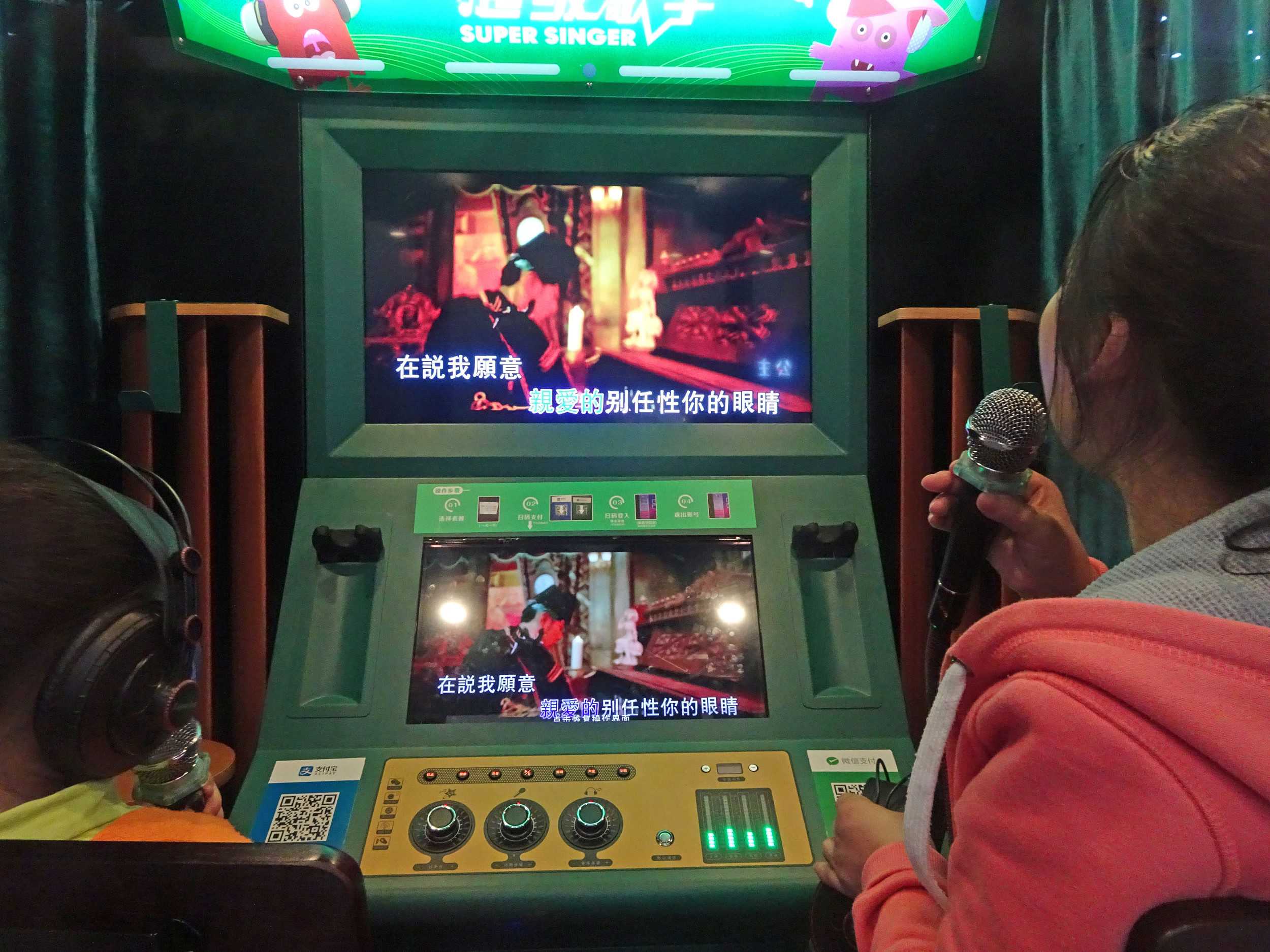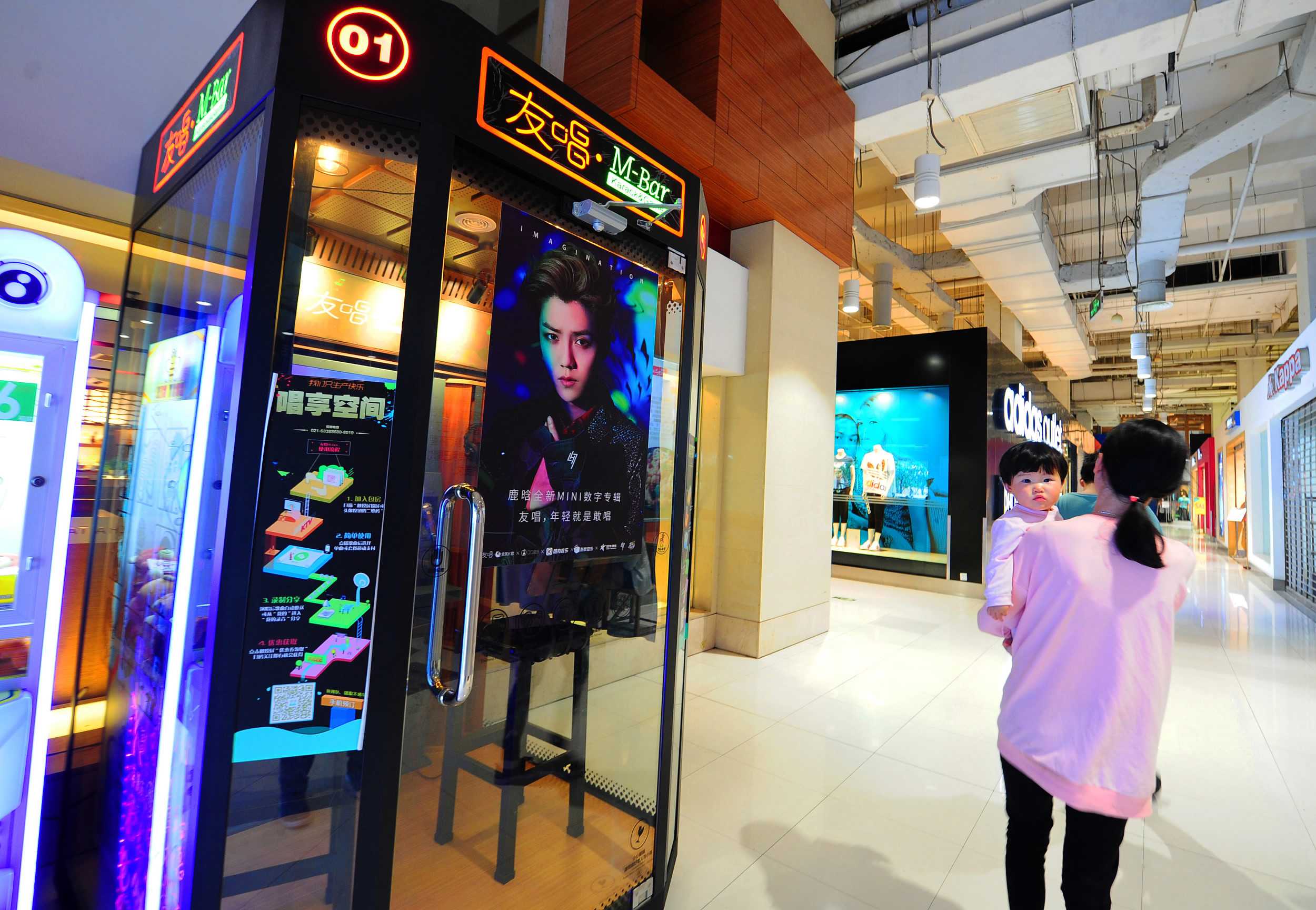Mini karaoke bars have been all the rage in China over the last year, springing up in shopping malls, outside theaters and at the entrances of supermarkets and food courts.
Singing at the top of one’s lungs, listening to others chant off-key or just killing time playing random music can all take place within the confines of tiny glass-enclosed spaces.
Soon, the idea expanded from Beijing to Shanghai, and even further south to Shenzhen.

People singing in a mini-KTV box. /VCG Photo
Equipped with everything any die-hard wannabe singer needs in a KTV, each room has three rows of lights, two tall stools, a pair of headphones and microphones.
Scanning QR codes, consumers can use mobile payments on platforms such as WeChat and Alipay.
Starting from the second half of 2016, Chinese people gradually became feverish about mini KTVs, as the craze struck a chord with the younger generation. There are over 10 companies providing such booths, including miniK, ucmbar, WOW house, Love sing among others.
From Beijing to Shenzhen, mini-KTV bars were intentionally set up in entertainment spots where a considerable number of people gather, with an attempt to revive the glory that KTV once made in entertainment market from the beginning of the century to the start of 2010s.

People are singing in a traditional KTV room. /VCG Photo
Traditional karaoke bars still exist, however they can hardly outperform themselves. Why? Not because everyone's needs have changed, but because people's reactions to old phenomena became different.
For older generations, people across the country were familiar with the same limited means of entertainment and KTV could easily resonate with them. Nowadays, however, the diversity of culture and the complexity of social subgroups have given way to a multitude of interests.
The old business model which grew as traditional karaoke boxes expanded has failed to sense the changes that has taken place in the market, and act upon it. As a result, it became out of tune with customers.
Now Mini KTV booths target small groups of friends, or even solo singers.
Luo Anwu, founder of U-sing mini KTV, said the concept of mini KTV is to move socialization from offline to online, offering users "a place to sing while socializing with their friends or other singers online."

Mini KTVs can be found in shopping malls. /VCG Photo
More and more people have joined the market in the hope they can make quick money. Some people choose to make their own brand, others choose to create a franchise. But in all cases, they will find the machine in itself is not enough, as rentals and competition put pressure on their bottom lines.
The markets of mini KTV in Beijing, Shanghai and Shenzhen are approaching saturation.
"Now I think all the brands should aim at second- or third-tier cities," said a franchisee of a mini KTV.









